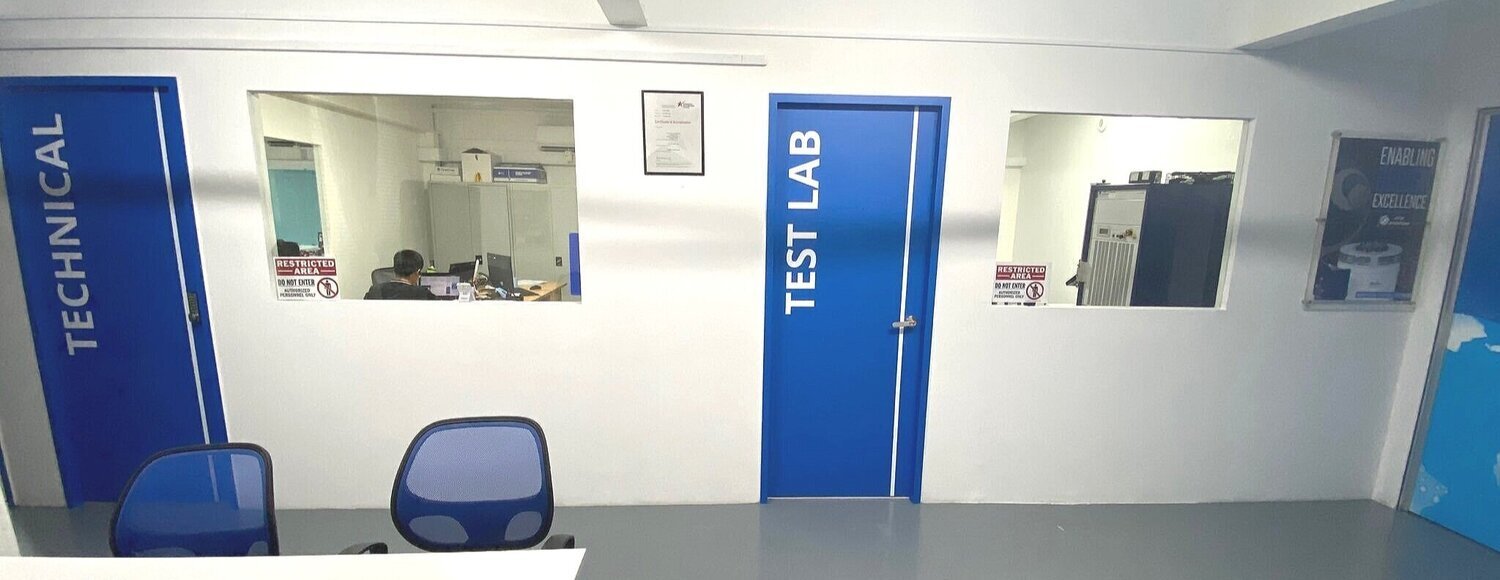The Benefits of an Accredited Calibration Services Laboratory
Calibration is a comparison between a known measurement (the standard) and the measurement using your instrument. Typically, the accuracy of the standard should be ten times the accuracy of the measuring device being tested. However, accuracy ratio of 3:1 is acceptable by most standards organizations.
Calibration of your measuring instruments has two objectives. It checks the accuracy of the instrument and it determines the traceability of the measurement. In practice, calibration also includes repair of the device if it is out of calibration. A report is provided by the calibration expert, which shows the error in measurements with the measuring device before and after the calibration.
Why calibration is important?
The accuracy of all measuring devices degrades over time. This is typically caused by normal wear and tear. However, changes in accuracy can also be caused by electric or mechanical shock or a hazardous manufacturing environment (e.x., oils, metal chips etc.). Depending on the type of the instrument and the environment in which it is being used, it may degrade very quickly or over a long period of time. The bottom line is that, calibration improves the accuracy of the measuring device. Accurate measuring devices improve product quality.
When should you calibrate your measuring device?
A measuring device should be calibrated:
According to recommendation of the manufacturer.
After any mechanical or electrical shock.
Periodically (annually, quarterly, monthly)
Hidden costs and risks associated with the un-calibrated measuring device could be much higher than the cost of calibration. Therefore, it is recommended that the measuring instruments are calibrated regularly by a reputable company to ensure that errors associated with the measurements are in the acceptable range.
🌟 SPECIAL OFFER!🌟
Ready to optimize your equipment's performance and minimize downtime? We've got an offer that you can't resist! For a limited time, enjoy a full 14 months of coverage for the price of just 12 with our Preventative Maintenance, Testing and calibration Packages. Act fast - secure your peace of mind today!
Key Benefits:
✅ 14 Months of Coverage for the Price of 12
✅ Expert PM, Testing & Calibration Services
✅ Guarantee Accuracy and Reliability
✅ Reduce Downtime and Costs
How to Claim Your Exclusive Offer:
📞 Call our expert team at +65 6340 1040.
📧 Email us at sales@ascend-tech.com for more information.
💻 Visit our website at https://www.ascend-tech.com/maintenance-and-customer-service to explore package options.
📅 Offer Valid Until December 15th
📆 Service Redemption Period: Up to 6 Months
Share this incredible deal with your colleagues, industry peers, and friends who can benefit from extended equipment coverage. Together, we can help you achieve peak equipment performance!
Benefits Doing Calibration Services with Accredited Laboratory:
Accreditation will:
Gain assurance of competence
Using an accredited laboratory allows you peace of mind that the competence of the laboratory engaged for testing of your products complies with international standards.
Maintain high quality
Testing facilities are guaranteed to preserve global quality standards through regular surveillance visits.
Minimize your risk
A SAC-accredited laboratory ensures that your product is competently tested, thus avoiding the risk of re-testing and re-work of your products.
Increase customer buy-in.
Using an accredited laboratory will improve your company’s image and gain customers buy-in.
As a pioneer member of the Mutual Recognition Arrangement (MRA) of the Asia Pacific Laboratory Accreditation Cooperation (APLAC) and the International Laboratory Accreditation Cooperation (ILAC) as well as having bilateral contract with the European Cooperation for Accreditation (EA), reports and certificates issued by SAC-accredited laboratories are recognised worldwide by MRA members that span across 65 economies.
There are a few different methods that may be used for calibration, depending on the desired results of the calibration and regulatory authorities’ requirements, like FDA guidelines:
ISO 17025 Accredited Calibration
This is one of the strictest forms of calibration. It typically requires a measurement report that details the measurements made against a standard as found (before calibration) and as left (after calibration). All the measurements and standards used need to be traceable to an acceptable national or international organization for standards. In case the calibration is undertaken by a calibration service provider, a certification is also issued.
Calibration service providers operate under strict guidelines, meet the manufacturer’s requirements, and are authorized to issue calibration certificates. We are proud to announce that our company is an ISO 17025 SAC-SINGLAS Accredited Laboratory.
FAQs
1. What is calibration, and why is it important?
Calibration is the process of adjusting and evaluating measuring instruments to ensure accuracy. It is crucial because accurate measurements are essential for quality control and compliance.
2. How often should equipment be calibrated?
The frequency of calibration depends on the type of equipment, its usage, and industry regulations. Typically, annual calibration is recommended, but some instruments may require more frequent calibrations.
3. Are accredited calibration services expensive?
While there is a cost associated with accredited calibration services, they are often more cost-effective in the long run compared to maintaining in-house calibration capabilities.
4. Can I calibrate my equipment in-house?
You can, but it requires specialized equipment, trained personnel, and can lead to significant downtime. Outsourcing to accredited laboratories is a more efficient option.
5. How can I find a reliable accredited calibration services laboratory?
You can search for accredited calibration laboratories online, or you can ask for recommendations from industry peers and associations to find a reputable service provider.
How Can We Help You?
Interested in our Testing & Calibration services? Send us your inquiry via the Testing & Calibration Lab Form and we will be pleased to help you.



